第5章 CHAPTER I EARLIEST IMPRESSIONS(4)
My mind was busy, however, with the old question eternally suggested by the inequalities of the human lot. Only as we neared the church door did I venture to ask what could be done about it, receiving the reply that it might never be righted so far as clothes went, but that people might be equal in things that mattered much more than clothes, the affairs of education and religion, for instance, which we attended to when we went to school and church, and that it was very stupid to wear the sort of clothes that made it harder to have equality even there.
It must have been a little later when I held a conversation with my father upon the doctrine of foreordination, which at one time very much perplexed my childish mind. After setting the difficulty before him and complaining that I could not make it out, although my best friend "understood it perfectly," I settled down to hear his argument, having no doubt that he could make it quite clear. To my delighted surprise, for any intimation that our minds were on an equality lifted me high indeed, he said that he feared that he and I did not have the kind of mind that would ever understand fore-ordination very well and advised me not to give too much time to it; but he then proceeded to say other things of which the final impression left upon my mind was, that it did not matter much whether one understood foreordination or not, but that it was very important not to pretend to understand what you didn't understand and that you must always be honest with yourself inside, whatever happened. Perhaps on the whole as valuable a lesson as the shorter catechism itself contains.
My memory merges this early conversation on religious doctrine into one which took place years later when I put before my father the situation in which I found myself at boarding school when under great evangelical pressure, and once again I heard his testimony in favor of "mental integrity above everything else."
At the time we were driving through a piece of timber in which the wood choppers had been at work during the winter, and so earnestly were we talking that he suddenly drew up the horses to find that he did not know where he was. We were both entertained by the incident, I that my father had been "lost in his own timber" so that various cords of wood must have escaped his practiced eye, and he on his side that he should have become so absorbed in this maze of youthful speculation. We were in high spirits as we emerged from the tender green of the spring woods into the clear light of day, and as we came back into the main road I categorically asked him:-"What are you? What do you say when people ask you?"
His eyes twinkled a little as he soberly replied:
"I am a Quaker."
"But that isn't enough to say," I urged.
"Very well," he added, "to people who insist upon details, as some one is doing now, I add that I am a Hicksite Quaker"; and not another word on the weighty subject could I induce him to utter.
These early recollections are set in a scene of rural beauty, unusual at least for Illinois. The prairie around the village was broken into hills, one of them crowned by pine woods, grown up from a bag full of Norway pine seeds sown by my father in 1844, the very year he came to Illinois, a testimony perhaps that the most vigorous pioneers gave at least an occasional thought to beauty. The banks of the mill stream rose into high bluffs too perpendicular to be climbed without skill, and containing caves of which one at least was so black that it could not be explored without the aid of a candle; and there was a deserted limekiln which became associated in my mind with the unpardonable sin of Hawthorne's "Lime-Burner." My stepbrother and I carried on games and crusades which lasted week after week, and even summer after summer, as only free-ranging country children can do. It may be in contrast to this that one of the most piteous aspects in the life of city children, as I have seen it in the neighborhood of Hull-House, is the constant interruption to their play which is inevitable on the streets, so that it can never have any continuity--the most elaborate "plan or chart" or "fragment from their dream of human life" is sure to be rudely destroyed by the passing traffic. Although they start over and over again, even the most vivacious become worn out at last and take to that passive "standing 'round" varied by rude horseplay, which in time becomes so characteristic of city children.
We had of course our favorite places and trees and birds and flowers. It is hard to reproduce the companionship which children establish with nature, but certainly it is much too unconscious and intimate to come under the head of aesthetic appreciation or anything of the sort. When we said that the purple wind-flowers--the anemone patens--"looked as if the winds had made them," we thought much more of the fact that they were wind-born than that they were beautiful: we clapped our hands in sudden joy over the soft radiance of the rainbow, but its enchantment lay in our half belief that a pot of gold was to be found at its farther end; we yielded to a soft melancholy when we heard the whippoorwill in the early twilight, but while he aroused in us vague longings of which we spoke solemnly, we felt no beauty in his call.